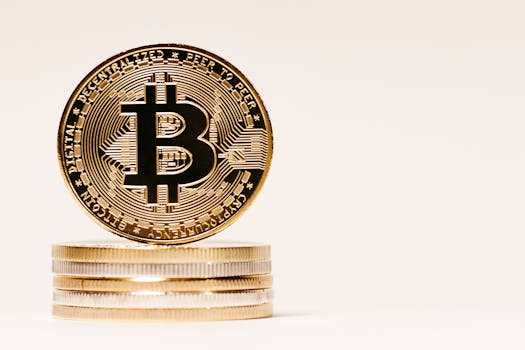The Future of Blockchain in FinTech: Secure Transactions Explained
The landscape of financial technology, or FinTech, is rapidly evolving, driven by innovations that enhance security, efficiency, and transparency. One of the most transformative technologies at the forefront is blockchain. This decentralized ledger technology has the potential to revolutionize how transactions are conducted, providing secure, swift, and reliable financial services. In this blog post, we will explore the future of blockchain in FinTech, focusing on secure transactions and their implications for the industry.
Understanding Blockchain Technology
Before delving into its applications in FinTech, it’s essential to understand what blockchain is. At its core, blockchain is a distributed ledger technology that records transactions across multiple computers in a way that the registered transactions cannot be altered retroactively. This ensures transparency and security because every participant in the network has access to the same information.
- Decentralization: Unlike traditional banking systems, which are centralized, blockchain operates on a peer-to-peer basis.
- Immutability: Once a transaction is recorded, it cannot be changed or deleted, reducing the risk of fraud.
- Transparency: All participants can view the transactions, enhancing trust among users.
The Role of Blockchain in Secure Transactions
In the realm of FinTech, the necessity for secure transactions has never been greater. Financial institutions are constantly facing challenges related to fraud, data breaches, and transaction errors. Here’s where blockchain comes into play, providing solutions to these pressing issues:
1. Enhanced Security
Blockchain technology employs cryptographic principles to secure transactions. Each transaction is encrypted and linked to the previous one, forming a chain. This means that altering any information would require changing all subsequent blocks, which is nearly impossible without the consent of the network. For example, in 2021, the Financial Services Regulatory Authority of Ontario published a report demonstrating how blockchain could mitigate fraud risks in insurance claims through its immutable nature.
2. Faster Transactions
Traditional banking systems can take days to settle cross-border transactions. However, with blockchain, transactions can occur in real-time or within a few minutes. Ripple, a notable player in the FinTech landscape, has successfully demonstrated this capability, processing cross-border payments almost instantly, thereby saving businesses significant amounts in transaction fees and time.
3. Reducing Costs
By eliminating intermediaries such as banks and clearinghouses, blockchain technology significantly reduces transaction costs. A study by the McKinsey Global Institute suggests that financial institutions could save over $100 billion annually through the adoption of blockchain, which can streamline processes by automating verification and compliance checks.
Real-World Applications of Blockchain in FinTech
Several organizations have already begun to integrate blockchain technology into their operations, showcasing its potential in enhancing security and efficiency:
1. Cryptocurrencies
The most well-known application of blockchain technology is cryptocurrencies like Bitcoin and Ethereum. These digital currencies facilitate peer-to-peer transactions without the need for intermediaries. They utilize blockchain to ensure that every transaction is secure and verifiable, leading to a revolutionary change in how we perceive money.
2. Smart Contracts
Smart contracts are self-executing contracts with the terms of the agreement directly written into code. They operate on blockchain technology and automatically enforce and execute agreements when predetermined conditions are met. This has applications in various sectors, such as real estate and insurance, streamlining processes and reducing the potential for disputes.
3. Supply Chain Finance
Companies like IBM and Walmart are leveraging blockchain to track products in their supply chains. By providing real-time visibility into the flow of goods and payments, blockchain enhances transparency and reduces fraud. For example, IBM’s Food Trust network utilizes blockchain to track the journey of food products from farm to table, ensuring safety and quality.
4. Digital Identity Verification
Identity theft remains a significant issue in the financial sector. Blockchain technology can help secure digital identities, allowing users to control their personal information. Solutions like uPort offer users a secure identity management system that can simplify the verification processes in banking and financial services.
The Challenges Ahead
Despite its immense potential, the integration of blockchain technology into FinTech is not without challenges:
- Regulatory Hurdles: Governments and regulatory bodies are still grappling with how to regulate cryptocurrencies and blockchain applications effectively.
- Scalability Issues: Many blockchain systems struggle with scaling to accommodate high transaction volumes, which could hinder widespread adoption.
- Public Perception: The association of blockchain with cryptocurrencies has led to skepticism among potential users, particularly regarding its legitimacy and security.
Conclusion
The future of blockchain in FinTech is promising, marked by the potential for secure transactions that can reshape the financial landscape. As organizations continue to explore and implement blockchain technology, we can expect to see more efficient, transparent, and secure financial services. However, addressing the challenges of regulation, scalability, and public perception will be crucial for unlocking the full potential of blockchain in the coming years.
FAQs
What is blockchain technology?
Blockchain is a decentralized digital ledger that records transactions across multiple computers securely, ensuring that the information is immutable and transparent.
How does blockchain enhance security in financial transactions?
By using cryptographic principles, blockchain ensures that once a transaction is recorded, it cannot be altered without the consent of the network, thereby reducing the risk of fraud.
What are smart contracts?
Smart contracts are self-executing contracts with the terms written directly into code on a blockchain, allowing for automatic enforcement and execution when conditions are met.
What are the challenges facing blockchain in FinTech?
Challenges include regulatory hurdles, scalability issues, and public perception concerns regarding the legitimacy and security of blockchain applications.
What is the future outlook for blockchain in FinTech?
The future is bright, with potential for increased efficiency, transparency, and security in financial services, provided that current challenges are addressed effectively.
